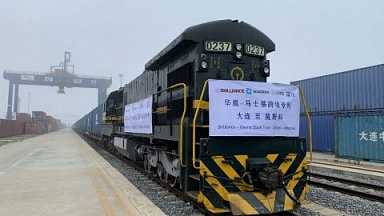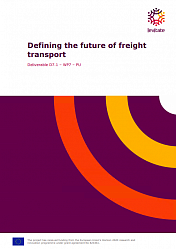A debate in Germany regarding whether the country should invest more in freeways instead of railways in the coming years has been underway since late January. To the surprise of the German railway sector, transport minister Wissing has been one of the most zealous supporters of funding road infrastructure.
In early March, a report commissioned by the transport ministry showed that road freight transport in Germany will grow in the coming years and that the railways are reaching their full cargo transport capacity. For many, this report will serve as justification to pour more money into the roads and let rail aside.
‘New plan’ for rail
Shortly after, Wissing told the German news agency dpa that «Germany has neglected its railway infrastructure for decades» and that capacity cannot meet the high demand. That is why he aims to undertake a vast project of modernising the most important railway lines by 2030.
At the same time, one may wonder if this is really a new plan. DB, for instance, has announced a series of infrastructure works to largely upgrade the railway network in the following years, while the German Rail Transport Master Plan has similar goals for 2030. The ministry has plans to increase the rail freight market’s share to 25 per cent and achieve the goals of the Deutschlandtakt.
Railways neglected, but roads funded?
The question is not only whether Wissing’s plan is indeed ‘new’, but also, why would the ministry want to invest more in roads? That road traffic will grow by 2051, and that trucks will carry cargo that should be moved by rail is not an excuse to fund road infrastructure more. In contrast, it should be a worrisome finding indicating that railways need more investments.
«Forecasts are not facts. Ministers who hide behind forecasts to wait out the overdue change in transport policy have a problematic professional understanding», states railway association Allianz pro Schiene. Another association—Die Güterbahnen, claimed that the ministry’s forecast that road freight traffic will grow disproportionately by 2051 also shows that rail freight traffic will decrease significantly.
Die Güterbahnen’s managing director Peter Westenberger criticised the government for sticking to obsolete transport plans that do not meet the promises of the past few years. Additionally, he said that the forecasted drop in rail freight shares should be a lever for more railway investments instead of investments to facilitate the possibly increased road traffic.
Crucial crossroads
Germany is at a crucial crossroads at the moment. Despite growth promises and probably the most extensive railway network in Europe, rail transport is at stake. Apart from rail transport, the green transition is also jeopardised. Considering also Germany’s opposition to banning internal combustion engines by 2035, among other things, it seems that the discourse will continue for a long time.




